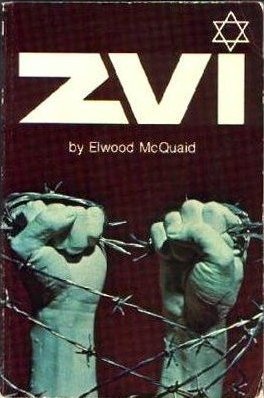
A Tale of Love and Darkness
Book Description
In a Jerusalem torn by conflict, a young boy's innocence collides with the weight of a fractured society. As his family's love battles against the shadows of despair and darkness, each moment pulses with heartache and hope, revealing the complexities of human connection and the scars of history. Through vivid memories and haunting truths, the boy's world unfolds—a tapestry of passion, loss, and the relentless quest for meaning in chaos. Will the power of love triumph over the darkness that threatens to consume them all?
Quick Book Summary
"A Tale of Love and Darkness" is Amos Oz's deeply personal memoir that interweaves his family's history with the broader narrative of the birth of Israel. Oz recalls his childhood in Jerusalem during the turbulent 1940s and 1950s, growing up amid collective anxieties and personal tragedies. The memoir poignantly captures his mother's struggle with depression, his father's scholarly ambitions, and the everyday realities of life in a state newly forged amid conflict. Through lyrical prose and evocative storytelling, Oz explores themes of love, loss, memory, and identity, depicting the struggle to find hope and connection in a world marked by suffering. The book offers both an intimate portrait of a family and a sweeping meditation on the burdens and aspirations of a nation.
Summary of Key Ideas
Table of Contents
The Intersection of Personal and National History
The memoir opens with Amos Oz’s vivid recollections of childhood in Jerusalem during British rule and the nascent years of the Israeli state. Oz’s family, recent immigrants from Eastern Europe, grapple with their new identity while holding onto memories and traumas from their old world. Through the eyes of a sensitive child, the cultural, political, and linguistic complexities of Jerusalem are woven into his earliest experiences, illustrating the profound influence of place and history on personal growth.
The Fragility of Family and Love
Oz’s family life is marked by love, but also by palpable fragility. His mother, Fania, a refuge from pogroms, battles debilitating depression, eventually leading to her tragic death. This loss haunts Oz throughout his life, shaping his psyche and future relationships. His scholarly father, Arieh, aspires to intellectual recognition, while the family is bound by both affection and unspoken sorrow. The household becomes a microcosm of longing, resilience, and the quiet heroism required to survive day-to-day amid uncertainty.
The Impact of Trauma and Loss
Beyond personal grief, the Oz family’s narrative is set against the collective trauma of Israel’s birth—war, fear, and hope coexisting in precarious balance. The memoir explores how individuals and society at large process and are shaped by repeated trauma—displacement, conflict, and loss. These hardships leave emotional and psychological scars that echo across generations, influencing identities and shaping the way people engage with the world and each other.
The Power of Storytelling and Memory
Throughout his memoir, Oz meditates on the power of storytelling and memory as tools for making sense of chaos. His detailed, lyrical prose preserves the lives and voices of his family, weaving their stories into the bigger tapestry of collective memory. Literature, language, and narrative serve as vital instruments for understanding, mourning, and, ultimately, healing. Through writing, Oz asserts the importance of bearing witness and constructing meaning from pain.
The Search for Identity in a Changing World
Finally, Oz’s journey is a search for selfhood amid turbulence. He chronicles his transformation from an impressionable child into a writer, shaped by both love and darkness. The evolution of his identity mirrors the evolution of his homeland—torn between past and future, shadow and light. The memoir closes on a contemplative note, acknowledging that the quest for hope and meaning never truly ends, but persists in the stories we carry forward.
Download This Summary
Get a free PDF of this summary instantly — no email required.





